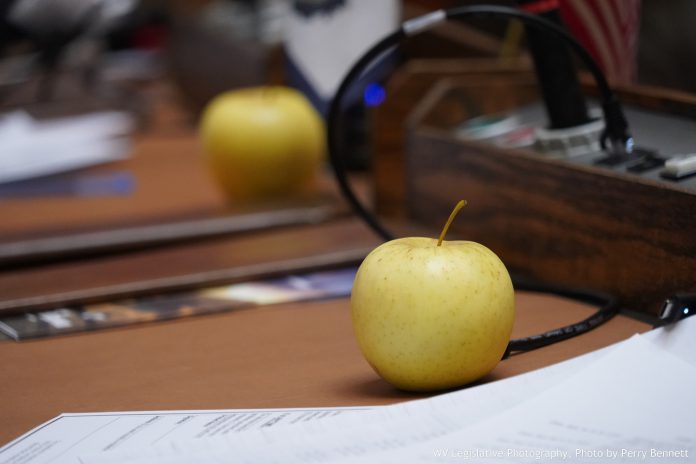The 2013 Regular Session of the 81st West Virginia Legislature has been dominated by talk of public education in West Virginia and the reform of the educational system. Much of that talk has been driven by low national rankings in relation to student achievements as well as deficiencies within the structure of the Department of Education which were highlighted by an educational audit taken last year.
Lawmakers undertook the task of examining and debating the original bill which was introduced first in the Senate. Throughout the committee process, this issue was discussed, weighing the pros and cons of each provision, with members from both the House of Delegates and state Senate as well as the various stakeholders who all share a common interest in improving the delivery of education in West Virginia.
After weeks of arduous committee work, revisions were made to the original bill which have made this piece of legislation a collaborative work with wide ranging support from members of both bodies.
“Senate Bill 359 will significantly advance the state’s public education system. The bill includes provisions relating to the school calendar, teacher hiring, school accreditation and college and career readiness,” said Senate Education Committee Chair Robert Plymale. “Additionally, assistant teacher positions for early childhood and Kindergarten programs will greatly improve our efforts in Early Childhood Education.”
Under changes made and approved by the Legislature, this compromise allows for school principals and faculty senates at individual schools to have a say over teacher hires with their recommendations receiving double weight among 11 factors used to fill teaching jobs. Additional factors for consideration during the hiring process include seniority and whether prospective teachers have a certification from the National Board for Professional Teaching Standards.
Another provision under this revised bill will no longer require state school superintendents to hold a master’s in education administration with the thinking behind this change being the potential of increasing the national pool of applicants for the superintendent’s post.
Other provisions in the bill would provide elementary school teachers with specialized training designed to increase the number of third-graders who end that year reading at grade level and make possible for full-day pre-K programs to be available to 4-year-olds statewide.
“The expansion of pre-K programs for our children and the reduction in funding Department of Education staffing are highlights of the bill for me,” said House Education Committee Chair Mary Poling. “The guarantee that students will get 180 days of instruction and the meaningful involvement of faculty senate and principals in hiring new teachers in their schools go a long way to restoring local control to our counties and schools.”
In relation to college preparedness, the bill requires the State Board of Education, the Higher Education Policy Commission and the Council for Community and Technical College Education to collaborate in formally adopting uniform and specific college- and career-readiness standards for English/language arts and math. It also will provide methods for determining whether students have met the college- and career-readiness standards, require that an explicit focus be embedded in each course on the development of English/language arts and math skills and require a 12th grade transitional course for both English/language arts and math for students not on track to be college ready
Also, this bill will no longer allow the nonprofit Teach for America program to operate in West Virginia, a controversial provision when the bill was first introduced.. Instead, the Legislature plans on studying programs such as this to determine their feasibility in West Virginia.
The 2013 Regular Session is more than halfway over but as this bill highlights, legislation works best when lawmakers, concerned citizens and stakeholders work together on compromises with the goal of a better West Virginia in mind for all.

